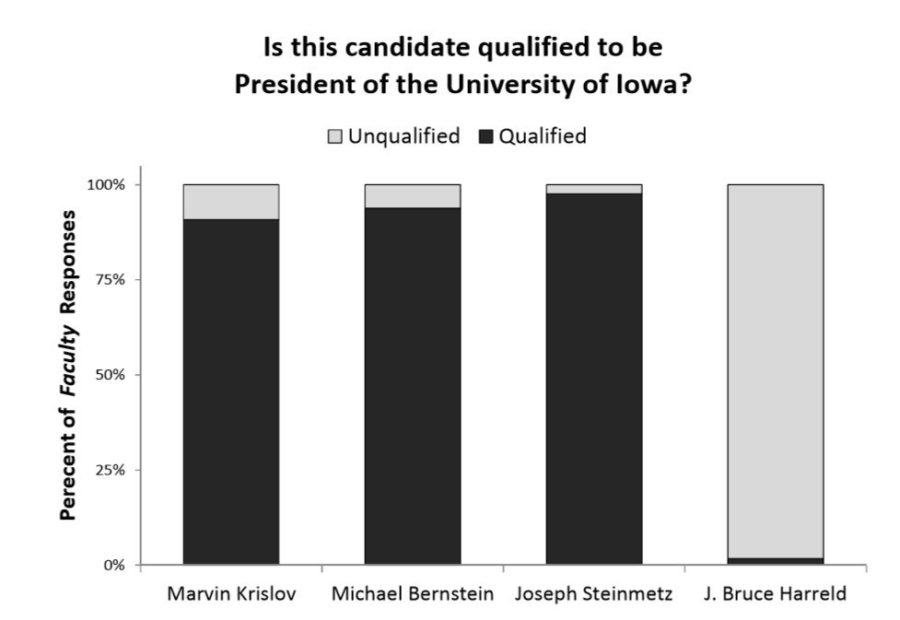Editorial: New UI president not good for community attitude
September 8, 2015
By the time November rolls around, the University of Iowa will have a new president, and the university community isn’t too thrilled about who will be at the helm.
The Iowa Board of Regents on Thursday unanimously selected J. Bruce Harreld, a man with little experience in higher academia, as the University of Iowa’s 21st president.
A survey conducted by the University of Iowa’s chapter of the American Association of University Professors (AAUP) showed Harreld garnered only 1.8 percent of approval from the university’s faculty and a 2.6 percent positive response from the university overall. Harreld beat out three other candidates who each had an about 90 percent approval rating.
Harreld, former IBM and Kraft General Foods executive, no doubt knows how to run a business. He’s no doubt intelligent. The University of Iowa needed a new direction and new ideas on how to run the university, and he is that unlikely pick.
That’s not the concern.
A man who has only eight years’ experience in higher education as a Harvard business school lecturer isn’t going to know how to run a Big Ten university, where he’ll be in charge of not only millions of dollars, but thousands of students and faculty.
A university is more than stocks and bonds. It’s a hub of activity, where learning, research, growth, collaboration, new friendships, hardships and even life lessons all take place.
And the community is speaking out about its disapproval.
Cornelia C. Lang, a UI associate professor of physics and astronomy told The Chronicle of Higher Education, “Someone who has not had academic administrative experience, just those things make me not have as much confidence in how the person is going to serve as our president.”
Another UI professor, Ed Folsom, told Business Insider the major fear of Harreld is filling a presidency that “looks to the Board of Regents for guidance and approval rather than looking to the university and community for guidance and approval.”
Not all comments are of disapproval, however. Iowa City Mayor Matt Hayek told the Iowa City Press-Citizen he thinks the new UI president’s background will be an asset to the university, saying that a “university is a multi-billion-dollar enterprise. President Harreld has experience in a variety of large institutional settings; I think he could bring a lot of expertise and sound judgment to this position.”
But, an AAUP poll states: “shared governance is a crucial part of academic leadership. Academic leadership cannot be effective without buy-in from all of the stakeholders in the university community, including faculty, students, staff, alumni and community members.”
The other regent universities, Northern Iowa and Iowa State have something at stake in this decision as well. The Iowa Board of Regents last legislative session attempted to pass a new funding model that would base state distribution to the regent universities based on graduation rates and number of Iowa students enrolled. This funding model failed, but it would have suggested less money to the University of Iowa, as it no longer has the most Iowa students, and given more to Iowa State and UNI.
The new president is already sparking controversy. It’s one thing to disagree with a leader, but still respect his or her qualifications. It’s another to not even believe he is qualified.
If the leader of the University of Iowa doesn’t have the support of his community, it’s going to be a bumpy start for Harreld. But we can’t predict the future. His history in business doesn’t necessarily make his selection as a university president the best, but it might be a change UI needs.
Plus, he’s already hired. If you, as a UI or Iowa State community member, have an issue with the decision, the best move to make would be to share your concern. Tell the Iowa Board of Regents, as it was ultimately the board’s decision.
The Iowa Board of Regents can be reached at: (515) 281-3934.

















